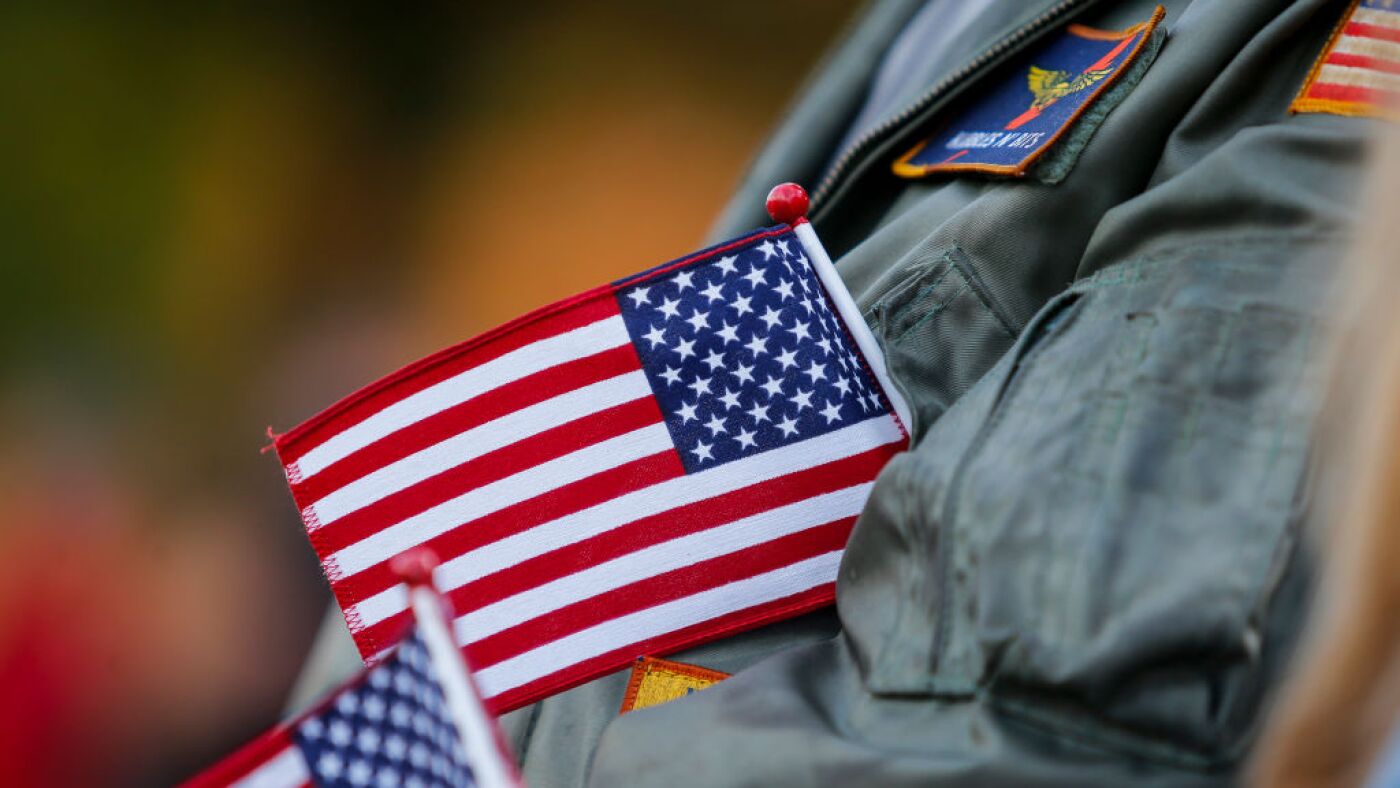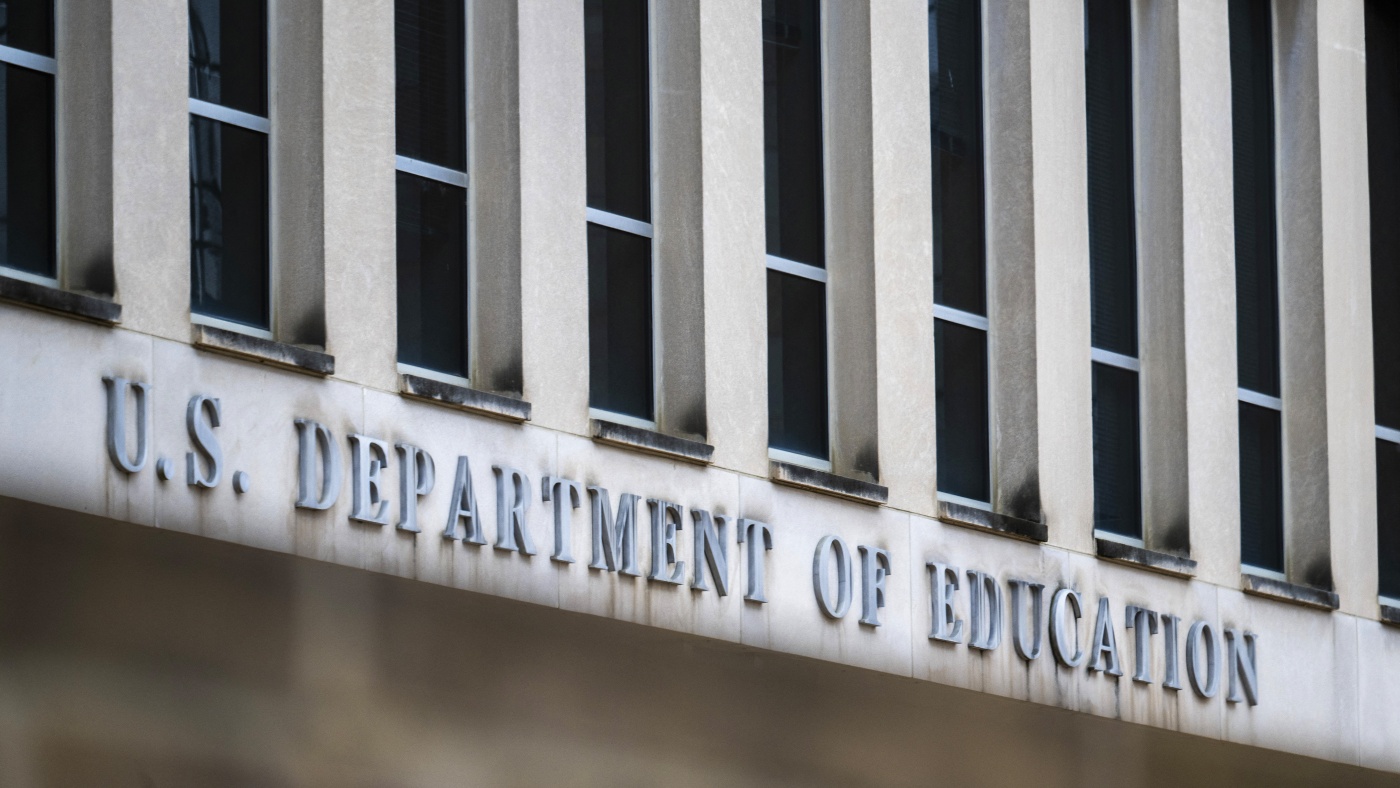Trump administration leaves Million Veteran Program data and research in limbo : Shots


A research project run by the Department of Veterans Affairs that analyzes genetic data has led to medical breakthroughs. Yet critical steps to keep the research going are stalled out.
Billy Schuerman/Virginian Pilot/Tribune News Service/Getty Images
hide caption
toggle caption
Billy Schuerman/Virginian Pilot/Tribune News Service/Getty Images
One of the world’s biggest genetic databases comprises DNA data donated over the years by more than a million retired military service members. It’s part of a project run by the Department of Veterans Affairs.
The initiative, dubbed the Million Veteran Program, is a “crown jewel of the country,” said David Shulkin, a physician who served as VA secretary during the first Trump administration.
Data from the project has contributed to research on the genetics of anxiety and peripheral artery disease, for instance, and has resulted in hundreds of published papers. Researchers say the repository has the potential to help answer health questions not only specific to veterans — like who is most vulnerable to post-service mental health issues, or why they seem more prone to cancer — but also relevant to the nation as a whole.
“When the VA does research, it helps veterans, but it helps all Americans,” Shulkin said in an interview.

Researchers now say they fear the program is in limbo, jeopardizing the years of work it took to gather the veterans’ genetic data and other information, like surveys and blood samples.
“There’s sort of this cone of silence,” said Amy Justice, a Yale epidemiologist with a VA appointment as a staff physician. “We’ve got to make sure this survives.”
Genetic data is enormously complex, and analyzing it requires vast computing power that VA doesn’t possess. Instead, it has relied on a partnership with the Energy Department, which provides its supercomputers for research purposes.
In late April, VA Secretary Doug Collins disclosed to Sen. Richard Blumenthal, the top Democrat on the Senate Veterans’ Affairs Committee, that agreements authorizing use of the computers for the genomics project remained unsigned, with some expiring in September, according to materials shared with KFF Health News by congressional Democrats.
Spokespeople for the two agencies did not reply to multiple requests for comment. Other current and former employees within the agencies — who asked not to be identified, for fear of reprisal from the Trump administration — said they don’t know whether the critical agreements will be renewed.
One researcher called computing “a key ingredient” to major advances in health research, such as the discovery of new drugs.
The agreement with the Energy Department “should be extended for the next 10 years,” the researcher said.
The uncertainty has caused “incremental” damage, Justice said, pointing to some Million Veteran Program grants that have lapsed. As the year progresses, she predicted, “people are going to be feeling it a lot.”
Because of their military experience, maintaining veterans’ health poses different challenges compared with caring for civilians. The program’s examinations of genetic and clinical data allow researchers to investigate questions that have bedeviled veterans for years. As examples, Shulkin cited “how we might be able to better diagnose earlier and start thinking about effective treatments for these toxic exposures” — such as to burn pits used to dispose of trash at military outposts overseas — as well as predispositions to post-traumatic stress disorder.
“The rest of the research community isn’t likely to focus specifically” on veterans, he said. The VA community, however, has delivered discoveries of importance to the world: Three VA researchers have won Nobel Prizes, and the agency created the first pacemaker. Its efforts also helped ignite the boom in GLP-1 weight loss drugs.
Yet turbulence has been felt throughout VA’s research enterprise. Like other government scientific agencies, it’s been buffeted by layoffs, contract cuts, and canceled research.
“There are planned trials that have not started, there are ongoing trials that have been stopped, and there are trials that have fallen apart due to staff layoffs — yes or no?” said Sen. Patty Murray, D-Wash., pressing Collins in a May hearing of the Senate Veterans’ Affairs Committee.
The agency, which has a budget of roughly $1 billion for its research arm this fiscal year, has slashed infrastructure that supports scientific inquiry, according to documents shared with KFF Health News by Senate Democrats on the Veterans’ Affairs Committee. It has canceled at least 37 research-related contracts, including for genomic sequencing and for library and biostatistics services. The department has separately canceled four contracts for cancer registries for veterans, creating potential gaps in the nation’s statistics.
Job worries also consume many scientists at the VA.
According to agency estimates in May, about 4,000 of its workers are on term limits, with contracts that expire after certain periods. Many of these individuals worked not only for the VA’s research groups but also with clinical teams or local medical centers.
When the new leaders first entered the agency, they instituted a hiring freeze, current and former VA researchers told KFF Health News. That prevented the agency’s research offices from renewing contracts for their scientists and support staff, which in previous years had frequently been a pro forma step. Some of those individuals who had been around for decades haven’t been rehired, one former researcher told KFF Health News.
The freeze and the uncertainty around it led to people simply departing the agency, a current VA researcher said.
The losses, the individual said, include some people who “had years of experience and expertise that can’t be replaced.”
Preserving jobs — or some jobs — has been a congressional focus. In May, after inquiries from Sen. Jerry Moran, the Republican who chairs the Veterans’ Affairs Committee, about staffing for agency research and the Million Veteran Program, Collins wrote in a letter that he was extending the terms of research employees for 90 days and developing exemptions to the hiring freeze for the genomics project and other research initiatives.
Holding jobs is one thing — doing them is another. In June, at the annual research meeting of AcademyHealth — an organization of researchers, policymakers, and others who study how U.S. health care is delivered — some VA researchers were unable to deliver a presentation touching on psychedelics and mental health disparities and another on discrimination against LGBTQ+ patients, Aaron Carroll, the organization’s president, told KFF Health News.
At that conference, reflecting a trend across the federal government, researchers from the Centers for Medicare & Medicaid Services and the Agency for Healthcare Research and Quality also dropped out of presenting. “This drop in federal participation is deeply concerning, not only for our community of researchers and practitioners but for the public, who rely on transparency, collaboration, and evidence-based policy grounded in rigorous science,” Carroll said.
KFF Health News is a national newsroom that produces in-depth journalism about health issues and is one of the core operating programs at KFF.
Source link






